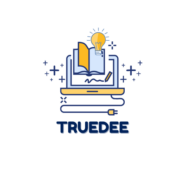As I dive into the world of adult learning activities, I can’t help but appreciate how essential they are for personal and professional growth. In today’s fast-paced environment, we often find ourselves juggling numerous responsibilities, making it crucial to engage in effective learning methods that fit our lifestyles. Whether it’s picking up a new skill or enhancing existing knowledge, adult learning activities offer valuable opportunities to expand horizons. I’ve discovered that these activities aren’t just about formal education; they can be fun, interactive, and tailored to individual needs. From workshops and online courses to community-based programs, the options are endless. Embracing these learning experiences can lead to greater confidence, improved job performance, and even new social connections. Let’s explore how to make the most of adult learning activities and unlock our full potential.
- Diverse Learning Formats: Adult learning activities include workshops, online courses, and community programs, providing flexibility and choice for learners to enhance their skills.
- Personal and Professional Growth: Engaging in adult learning fosters skill enhancement, boosts confidence, and leads to increased job performance.
- Types of Learning: Adult learning can be categorized into formal, informal, and non-formal learning, each offering unique benefits and pathways to education.
- Social and Networking Opportunities: Participating in group learning activities helps build valuable social connections and professional networking opportunities.
- Self-Directed Learning: Adults have the freedom to take charge of their educational journey, selecting resources that align with their interests and goals.
- Impactful Design: Effective adult learning activities require a needs assessment, clear objectives, and evaluation methods to ensure engagement and retention of knowledge.
Adult Learning Activities
Adult learning activities encompass a wide variety of experiences designed for personal and professional development. Engaging in these activities can greatly enhance knowledge, skills, and overall well-being.
Types Of Adult Learning Activities
- Workshops: These interactive sessions allow me to gain hands-on experience and apply new concepts in real-time.
- Online Courses: Platforms like Coursera and Udemy offer accessible learning opportunities on diverse subjects, fitting seamlessly into my schedule.
- Community Programs: Local organizations often provide educational offerings that foster connections and skill-building among participants.
Benefits Of Adult Learning Activities
- Enhanced Skills: I can improve both hard and soft skills through targeted learning experiences.
- Increased Confidence: Participating in learning activities boosts my self-esteem and encourages personal growth.
- Networking Opportunities: Engaging with like-minded individuals expands my professional and social connections, opening doors for future collaboration.
- Self-Directed Learning: I take charge of my educational journey, selecting resources and setting goals that align with my interests.
- Blended Learning: Combining in-person activities with online components creates a flexible and effective learning environment for me.
- Peer Learning: Collaborating with others encourages knowledge sharing and supports mutual growth.
By actively participating in adult learning activities, I not only enrich my own life but also contribute positively to the community around me. The variety of options available allows me to tailor my learning experiences to my unique preferences and goals.
Types Of Adult Learning Activities
Adult learning activities can be categorized into three main types: formal learning, informal learning, and non-formal learning. Each type offers unique approaches to education and skill acquisition, catering to diverse preferences and needs.
Formal Learning
Formal learning occurs in structured environments like schools, universities, and training institutions. Programs often include accredited courses, certifications, and degrees that follow an established curriculum. Examples include master’s degree programs, professional certifications in fields like project management or digital marketing, and vocational training. This type of learning typically emphasizes assessment, grading, and a clear progression pathway.
Informal Learning
Informal learning takes place outside of formal educational settings. It often happens through daily experiences, personal interests, or workplace interactions. Examples include self-study through books and articles, engaging in hobbies that enhance skills, or learning from peers in social settings. This type of learning emphasizes self-direction and spontaneous knowledge acquisition, allowing individuals to tailor their learning to their interests and goals.
Non-Formal Learning
Non-formal learning bridges the gap between formal and informal learning. It includes organized activities that are not typically linked to formal certifications but offer valuable skills and knowledge. Examples encompass workshops, seminars, and community education programs, which focus on practical skills like cooking, coding, or financial literacy. This type of learning often relies on participation and collaboration, encouraging learners to engage actively with the material.
Benefits Of Adult Learning Activities
Engaging in adult learning activities offers numerous benefits that significantly impact both personal and professional development. These activities not only enhance skills but also foster social connections and contribute to individual growth.
Skill Enhancement
Skill enhancement occurs as I actively participate in various learning activities. Workshops and online courses focus on specific skills such as digital literacy, leadership, or technical abilities. Real-world application of these skills leads to improved job performance and increases competency in my field. Engaging in diverse learning formats ensures I stay updated with industry trends, equipping me with knowledge that keeps my skills relevant.
Social Integration
Social integration becomes evident as I engage with diverse groups during learning experiences. Participating in community programs or group workshops provides opportunities to connect with others, fostering valuable relationships. Networking within these settings expands my professional circle, leading to potential collaborations and career opportunities. Building these connections enhances my sense of belonging and broadens my perspectives, making my learning journey more enriching.
Personal Growth
Personal growth flourishes as I immerse myself in adult learning activities. Through self-directed learning and interactive participation, I develop confidence and a growth mindset. I challenge myself to step outside my comfort zone, enhancing not only cognitive abilities but also emotional resilience. By exploring new interests and acquiring new knowledge, I cultivate a deeper understanding of myself and my capabilities, enhancing overall life satisfaction.
Designing Effective Adult Learning Activities
Designing effective adult learning activities requires careful consideration of various elements that enhance engagement and retention. Focusing on the participants’ needs, setting clear objectives, and establishing evaluation methods ensures that these activities are impactful.
Needs Assessment
Conducting a needs assessment identifies the specific learning requirements of the target audience. This involves gathering data through surveys, interviews, and focus groups to understand participants’ backgrounds, experiences, and desired skills. I consider factors such as age, professional background, and learning preferences to tailor activities to meet diverse needs. Prioritizing real-world applications of learned skills fosters relevance and drives motivation.
Learning Objectives
Clearly defined learning objectives guide the structure of adult learning activities. I formulate objectives using the SMART criteria: Specific, Measurable, Achievable, Relevant, and Time-bound. For instance, an objective might state, “”Participants will increase their project management skills by successfully completing a group project within four weeks.”” This clarity enables participants to understand what they will gain, enhancing focus and commitment throughout the learning process.
Evaluation Methods
Implementing effective evaluation methods measures the success of adult learning activities. I utilize a combination of formative and summative assessments to gauge participant progress and the overall effectiveness of the program. Techniques may include pre- and post-training assessments, participant feedback surveys, and practical demonstrations of skills. Regular feedback allows for necessary adjustments to improve future learning experiences while ensuring that participants feel their growth is acknowledged and valued.
Engaging in adult learning activities is a powerful way to enhance my skills and broaden my horizons. Whether I choose workshops or online courses I’m investing in my personal and professional growth. These experiences not only boost my confidence but also help me connect with others who share similar interests.
By actively participating in various learning opportunities I’m not just gaining knowledge but also enriching my life. Tailoring my learning journey to fit my lifestyle makes the process enjoyable and fulfilling. As I continue to explore these avenues I’m excited about the endless possibilities that lie ahead.

